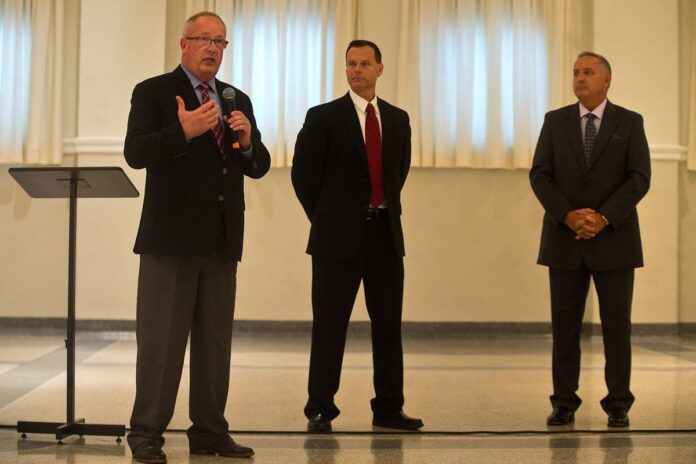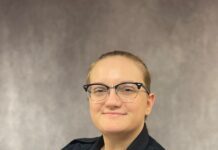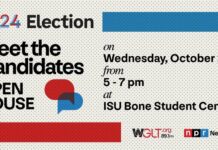Two contenders remain for the job of Bloomington’s top cop. On one side, Bloomington Assistant police chief Dan Donath, 50, stood with a 25 year history in the Bloomington Police Department.1 On the other side, Parkland college Police Chief William Colbrook, 55, whose history includes 26 years with the Illinois State Police. The two candidates met with about 50 Bloomington residents at the Performing Arts Center on Tuesday, August 20th. However, the only person who needed to be impressed, was Bloomington City Manager Tim Gleason who says he will make the final decision next week.2
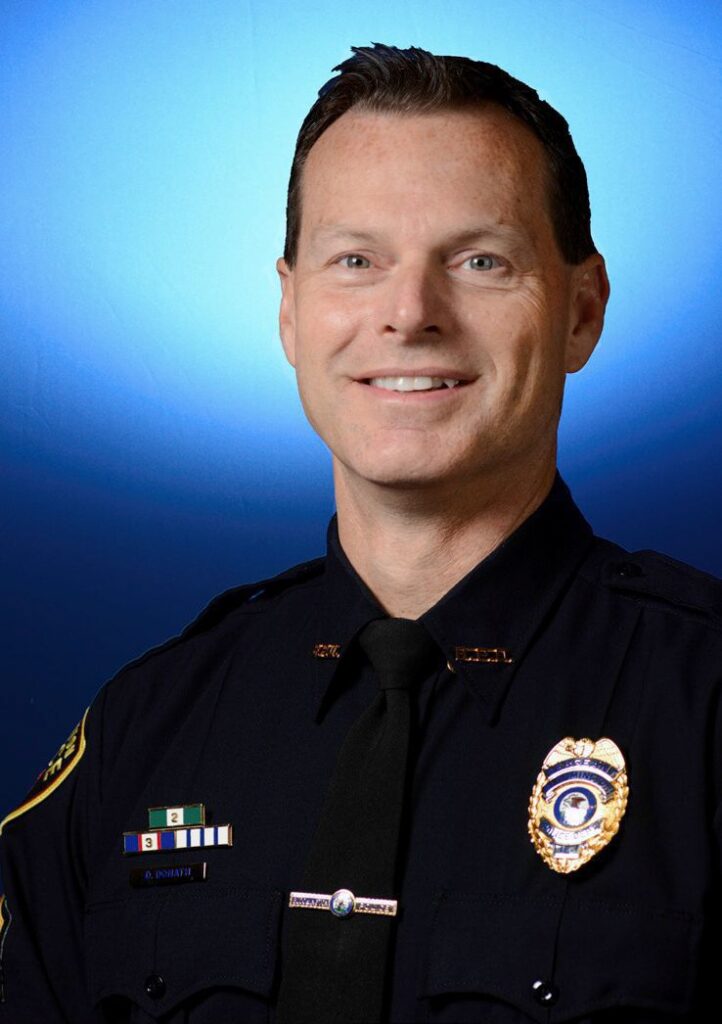
Donath expressed his support for more “community policing” (whatever that means)3 and along with a wellness program for officers to relieve stress. He was jubilant with BPD because, in his words, there were no major problems in the department. However, when asked about the communications between BPD and Immigration & Customs Enforcement (ICE) revealed earlier this year4 he feigned ignorance. One resident asked Donath how he would address immigrants fear of ICE collaboration, but the Assistant Chief seemed indifferent to this concern blaming social media for spreading misinformation or blowing things out of proportion (this was an excuse that Former BPD Chief Brendan Hefner also made). 5
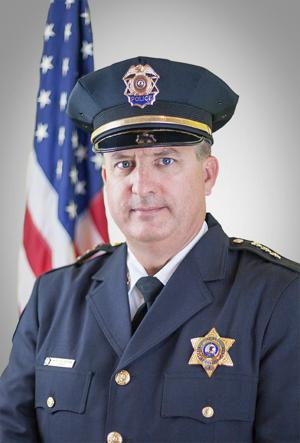
Colbrook touted his experience in working with diverse groups (including international students) at Parkland College. “When I walk down the hallways, I don’t see undocumented immigrant; I see, student.” he said in reference to questions regarding police collaboration with ICE. He repeatedly stated he would follow the Illinois Trust Act6 suggesting a light touch with ICE communication. He also stated he was not a cop apologist blindly defending the police.
Black Lives Matter of BloNo showed up in force to the meet-and-great with over a dozen comrades. They presented each candidate with a list of questions to be answered and returned. “The questions are meant to gauge the candidates’ willingness to establish new norms in community policing, transparency and police accountability,” the group said via email. The group says they will post each candidates answers to the questions on their Facebook page, even if they are received after the City Manager makes his decision. Hopefully, this will add some more accountability to the process.
Here is a list of the questions given to each candidate:
Questionnaire for Applicants for the Chief of Police – Bloomington Police Department
1. Currently, the Bloomington Police Department does not disclose departmental protocols and practices to the public, including: details about hiring requirements, officer evaluation standards and measures for advancement and promotion, details about what training officers receive, department demographics, barriers to recruiting minority applicants or disciplinary protocols. If selected as BPD Chief, would you be willing to publish, and keep current, the information listed above?
2. BPD does not regularly update and make available information about: stops made/interactions with residents, the cause of each detention/stop/arrest, arrests, searches, use of force, and other enforcement outcomes, as they relate to race and other demographic information. If selected as BPD Chief, would you be willing to maintain the online publication of the information listed above, updated no less than once a quarter?
3. If selected as BPD Chief, will you publicly affirm the right of the public to record police discharging their duties, instruct every officer to allow residents to record them in the discharge of their duties without harassment, and take disciplinary action against any officers who violate this right?
4. To protect the privacy and liberty of our community, and to ensure that marginalized communities are not being disproportionately targeted, will you publicly disclose the general locations of BPD hidden cameras and work with community members to reform, develop and/or clarify policy on the use of video surveillance, if you are selected as BPD Chief?
5. If selected as BPD Chief, will you work with community groups and residents to develop and/or refine a body camera policy that ensures police accountability, civilian privacy, and integrity of recordings?
6. Please describe your experience with training in de-escalation, mediation and non-violent conflict resolution. If selected as BPD Chief, will you work with community groups to ensure that the BPD training regimen reflects a desire for peaceful and equitable outcomes in police encounters, and work with the community in designing the necessary curriculum?
7. The Bloomington Police Department has subscribed to a decades-long focus on policing minor crimes and activities – a practice called Broken Windows, or Problem Oriented, policing. This has led to the criminalization and over-policing of communities of color. Black people make up about 10% of the driving population but in the recent reporting made up 20% of all Bloomington traffic stops, 21% of all consent searches and 46% of all K9 sniffs. In contrast, white people, who make up 79% of the driving population in Bloomington, only accounted for 71% of all traffic stops, 70% of all consent searches and 48% of K9 sniffs. This pattern of targeting minor traffic stops in order to conduct searches and sniffs, is a practice known as pretext stops. If selected as BPD Chief, would you put an end Broken Windows/Problem Oriented policing, and end pretext stops, by de-prioritizing enforcement of minor offenses?
8. What is your opinion on a police policy that gives out assignments and promotions based on the number of times an officer cites and stops people?
9. A growing number of police departments across the United States are deploying new computer systems that use data in an attempt to automatically forecast where crime will happen or who will be involved. Today, these “predictive policing” tools are used primarily to further concentrate enforcement activities in communities that are already over-policed, rather than to meet human needs. What is your attitude towards “predictive policing”?
10. Do you have experience with training in de-escalation, mediation, and non-violent conflict resolution? If so, what type of experience? How important is this for a police force you would command? Will you require all officers to be trained in de-escalation techniques and create a system to review officer’s body camera video for all arrests that include resisting arrest charges?
11. One issue that has been significant for the Bloomington Normal community is how we can best protect and serve our immigrant and undocumented population. According to a FOIA, the Bloomington Police Department has been in contact with Immigration and Customs Enforcement in regards to residents in this community. If selected as BPD Chief, would you ensure the separation of the BPD and ICE and work together with the immigrant and undocumented community as to improve trust and in turn safety for all residents?
Both Donath and Colbrook said they would answer the questions and return them to BLM, though Donath prefaced this with, “as long as there are no ‘gotcha’ questions7.”
Donath is from within the department and refuses to even admit that BPD has serious issues it needs to address. He seemed particularly uninterested with doing much to assuage the fears of the local immigrant community despite some vague attempt utilizing social media. It’s hard to believe much would change under a Hefner 2.0.
Colbrook would technically be an outsider, new to the department. His background in higher education suggests a willingness to see diversity as a benefit and perhaps an openness to new ideas regarding reforming in police. However, I don’t want to give the impression Colbrook would be revolutionary. It’s just, if your choices are Meh and Mehh, you chose the one that is slightly less meh.
If you want to let City Manager Tim Gleason know who you want to be Bloomington’s next police chief, you should call him @ 309 434-2210 or email him at tgleason@cityblm.org.
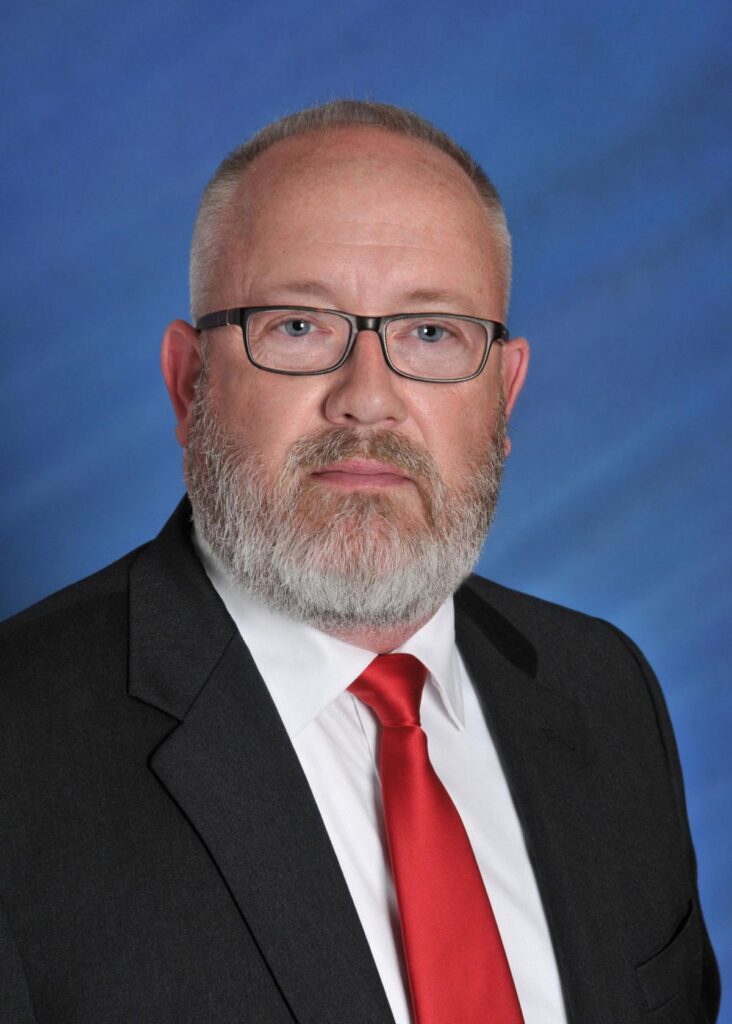
Update: Don Donath selected as Bloomington’s Police Chief
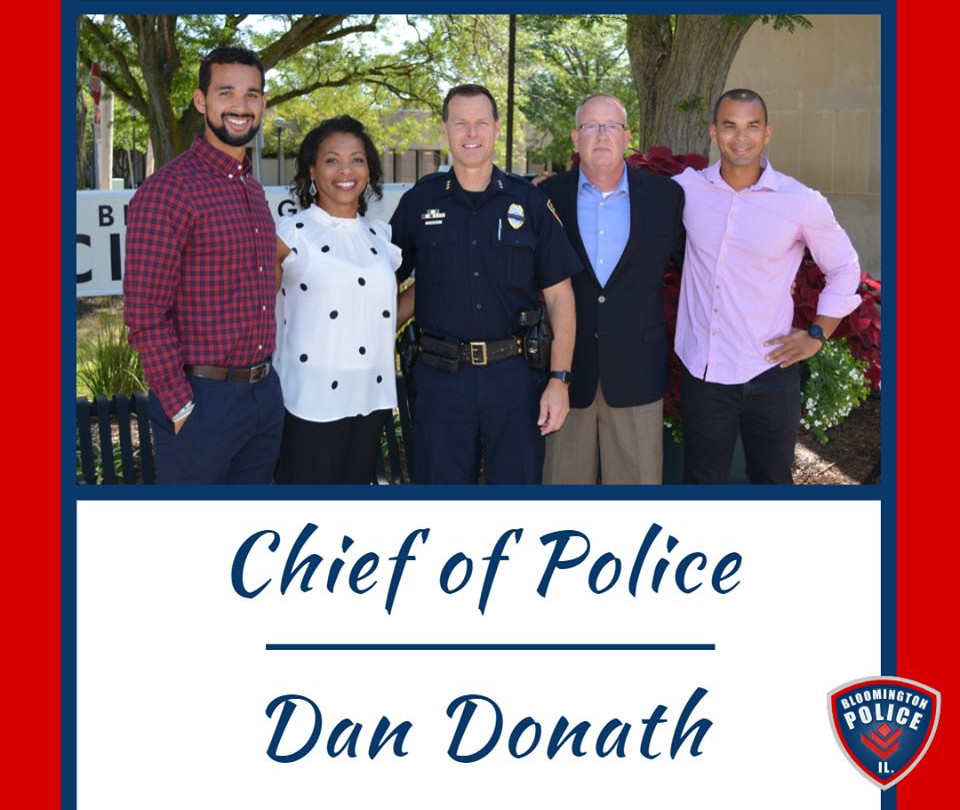
Bloomington insider Don Donath was selected by Bloomington City Manager Tim Gleason to be the city’s top cop. No word yet on questionnaire provided by local activist group Black Lives Matter BloNo, which both candidates promised to provide.
This article was originally published at strangecornersofthought.com.
- Donath has served as a patrol officer, detective in the criminal investigations division and vice unit, DARE (Drug Abuse Resistance Education) officer and crime scene investigator. He was promoted to sergeant in 2013 and to assistant chief in September 2018. Since Wheeler’s departure on June 21, Donath has split the duties of interim chief with Assistant Police Chief Greg Scott.
- It’s odd that the Police Chief position is not only unelected but also not voted on by Bloomington City Council.
- Throughout almost the entire history of modern policing (dating to the 19th century) reformers have repeatedly used terms like community policing to express their ideals at what policing should be. “Community policing” has been attached to so many varied, disparate police practices its hard to determine what this actually means.
- “One instance involved a 2015 query to ICE over a missing person BPD was trying to locate. Another in 2017 involved a traffic stop and search in which no contraband was found. A third was a request from ICE to BPD in 2016 for current address information, and the fourth involved a university student who allegedly violated the terms of his student visa by transferring to another institution in his first semester. A tipster also notified BPD that person was working in a restaurant and being paid under the table.” https://www.wglt.org/post/coalition-emails-show-close-relationship-between-bloomington-police-ice#stream/0
- See WGLT interview. https://www.wglt.org/post/bloomington-police-chief-defends-cooperation-ice#stream/0
- The Illinois Trust Act limits certain kinds of communications between police and ICE officials.
- Another word former Chief Hefner used.


